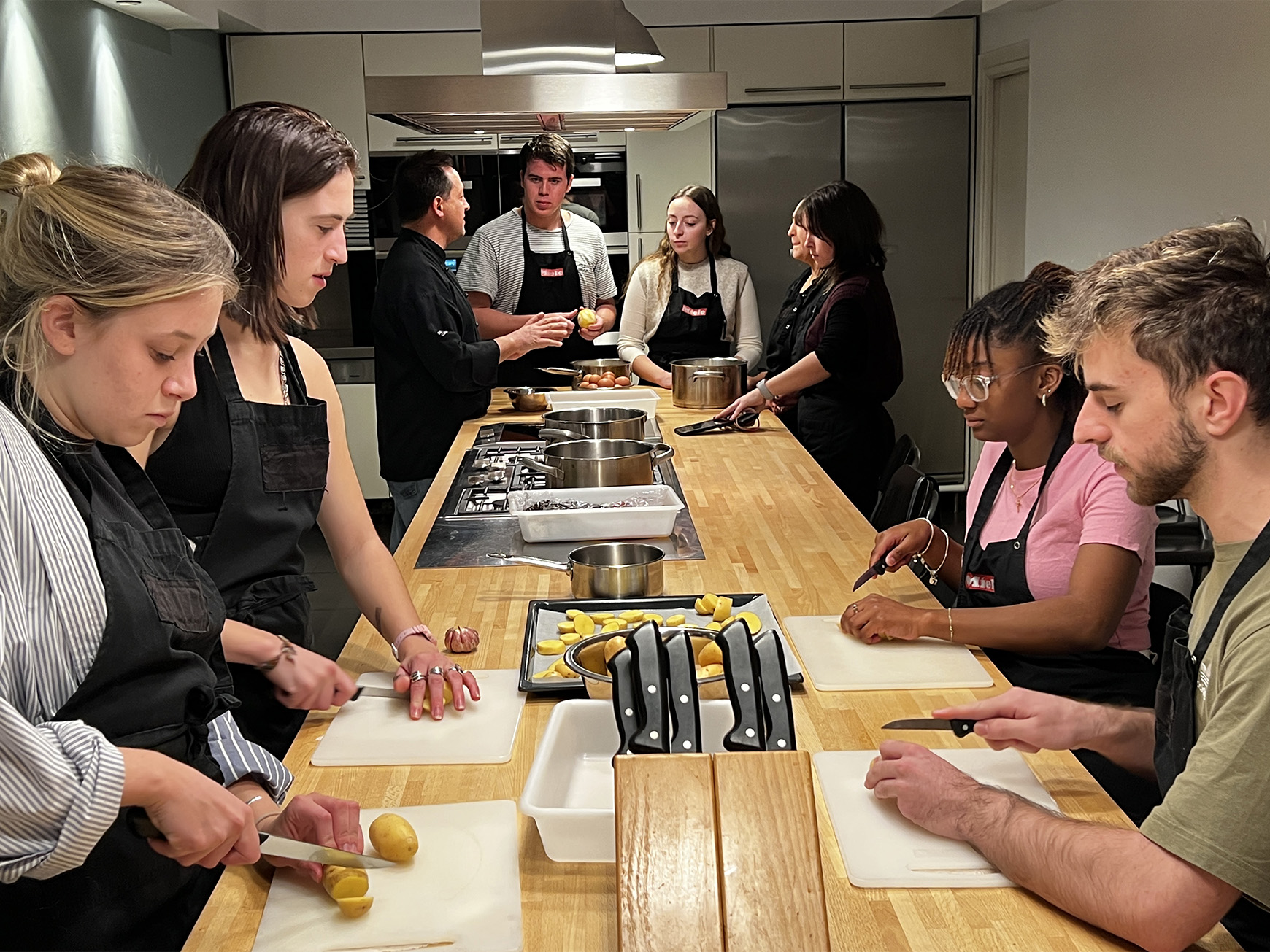Tips For Academic Success Abroad


Study abroad opens doors to new experiences, cultures, and personal growth. But one of the biggest concerns you might have is academics. How different will classes be? Will you be able to keep up? Can you balance schoolwork with travel and exploration? These are common questions, and with preparation, flexibility, and the right habits, you can achieve academic success abroad and thrive.
Understanding different academic structures
Not all study abroad programs are structured the same, and understanding these differences can help you choose the right academic environment for you.
IFSA-designed programs: structured support
IFSA-designed programs are created specifically for international students. This is where you’ll find smaller class sizes, dedicated academic support, and courses that integrate traditional study with cultural perspectives. You’ll take classes alongside other IFSA and U.S. students at IFSA Centers, which means you’re learning in a supportive environment tailored to your experience rather than navigating an entire university system on your own. This model often feels familiar to U.S. universities while still providing the intellectual challenge of studying in a new context.


Direct-enroll program: immersive learning

By contrast, enrolling directly in a university that partners with a study abroad provider like IFSA means you join the campus community at your university of choice. You might find yourself in classes that are larger than you’re accustomed to, with fewer graded assignments and greater emphasis on self-directed study. In some cases, a single final exam or major paper determines most of your grade.
Grading systems also differ; what appears to be a lower result abroad might actually convert to a higher equivalent at your home college or university.
“While I was excited to experience this unique system, adjusting to it wasn’t easy. You’re assigned tutorials, write multiple essays, and then defend your ideas in weekly meetings with your tutor. It’s a challenge, but one that pushes you to think critically and communicate with confidence.” Vy D., Trinity College (Conn.), IFSA University of Oxford Partnership
Both approaches have distinct strengths. IFSA-designed programs prioritize guidance and scaffolding to help you transition smoothly, while partner universities immerse you more deeply in local traditions of teaching and evaluation. Thinking carefully about the environment that best matches your learning style and academic goals can make all the difference.
Not sure how your major fits into a study abroad program?
The good news is that students from every major can study abroad with the right planning. Explore our guide, Can All Majors Study Abroad? to see which programs are the best-fit for you and how students in STEM, pre-med, business, and more have successfully made it work.
Adjusting to teaching and communication styles
Teaching methods abroad might look very different from what you’re used to. Some courses emphasize independent research and self-directed projects, while others are grounded in lectures, presentations, and seminar discussions. It’s normal to feel uncertain at first, but adaptability is a skill you’ll quickly develop, and one that will benefit you long after your program ends.
Navigating language and communication

Even in English-taught programs, you may encounter accents, unfamiliar terminology, or a faster pace of delivery. These challenges are part of the learning journey, not a reflection of your ability.
Here are some tips to succeed:
- Take careful notes and review key concepts and terms after class.
- Use campus resources such as writing centers or language support services.
- Ask about office hours. Professors are accustomed to working with international students and usually welcome questions during office hours.
“I’m an exchange student, so it’s natural not to understand everything. If I understand even a little, that’s a win! This mindset shift made me feel much more comfortable and helped me adjust to classes in Spanish.” Hiromi I., Soka University of America, IFSA Universidad Nacional Partnership in Costa Rica
Concerned about language requirements?
You might find it reassuring to know that many programs are designed with beginners in mind. You don’t always need fluency to succeed abroad, and in fact, studying abroad can be one of the best ways to build language skills over time. To explore this further, see our guide, Do You Need to Speak the Language to Study Abroad? Here’s What You Should Know.
Five habits to build academic success abroad
Study abroad often requires more independence than you might be used to at home. Establishing strong study habits early helps ease the transition and gives you the confidence to thrive in a new environment. Here are a few strategies to consider:
- Set aside weekly study sessions. This helps you stay on top of readings and assignments, especially if classes abroad rely more heavily on independent learning.
- Find a favorite study space. Whether it’s a quiet corner of the library, a local café, or your host family’s home, having a regular spot makes it easier to focus in a new setting.
- Join or form study groups. Working with local and international classmates gives you fresh perspectives and helps you stay motivated.
- Break larger assignments into manageable steps. This is particularly useful if deadlines or grading systems differ from what you’re used to.
- Use a planner or digital calendar. Keeping track of deadlines, exams, and travel plans ensures you can balance academics with exploring your host city.
These habits don’t just make academics more manageable while abroad; they also strengthen time management and problem-solving skills that support academic success abroad and beyond.
Using campus resources for academic success
Universities abroad want you to succeed. From writing labs and tutoring services to advising sessions and professor office hours, resources are readily available to help you stay on track.
Making use of these services not only strengthens your academic performance but also demonstrates initiative, something faculty members value. Remember, you’re not expected to figure everything out on your own.

Balancing academics with adventure
One of the most exciting parts of studying abroad is the opportunity to explore your new city and travel to surrounding regions. You might wonder whether you’ll have time for these experiences while also managing your academic responsibilities.
With thoughtful planning, the answer is yes. Using a calendar to organize assignments and exams alongside weekend or holiday trips helps you enjoy both worlds fully. Far from distracting from your academics, exploring your surroundings often enriches your learning by connecting classroom topics to lived experience.
Additionally, every IFSA program includes excursions and activities that offer the opportunity for local travel, cultural immersion, and fun with your peers, without the hassle of planning and preparation—and without additional expense.

Why academic success abroad matters
Academic success abroad isn’t just about grades. It’s about demonstrating resilience, independence, and global perspective—qualities employers value in today’s marketplace. By learning to thrive in a new academic system, you show future employers that you can adapt to challenges, communicate across cultures, and bring resourcefulness to any role.
“I didn’t realize how immersing myself in Rome’s art, history, and culture would transform my perspective. This experience showed me the value of the humanities, not just for personal growth but for understanding how innovation and progress are shaped by culture and history.” Joseph K., Stevens Institute of Technology, IFSA January in Rome
Start your journey
The first weeks abroad might feel challenging as you navigate a new academic culture. That’s completely normal. Over time, what feels unfamiliar will become second nature. With flexibility, good habits, and a willingness to adapt, you’ll discover that academic success abroad is not just possible—it’s one of the most rewarding parts of the journey. Choosing a program that truly fits your goals is the first step toward that success. Get started by using the program finder to find the best-fit program for you.